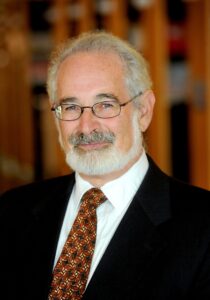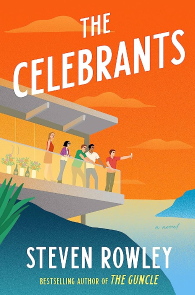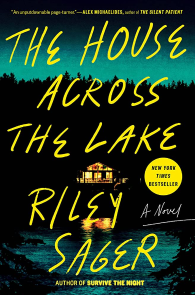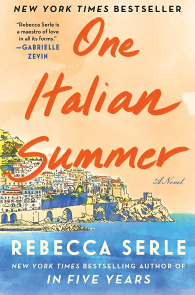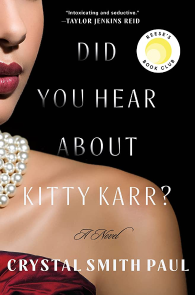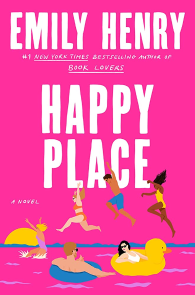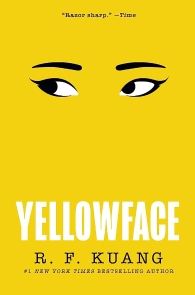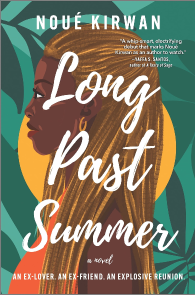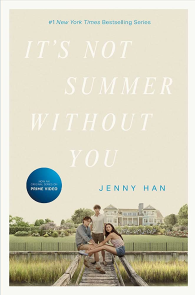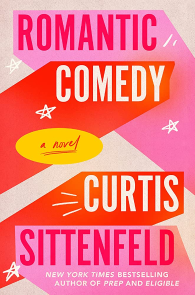Uncategorized
Resources: Oxford Research Encyclopedias
Through an arrangement with the California Digital Library and Oxford University Press, the Library has access to the entire collection of Oxford Research Encyclopedias. Oxford University Press works with international communities of scholars to develop comprehensive collections of in-depth summaries on a growing range of topics for the Oxford Research Encyclopedia (ORE). Articles are peer-reviewed and vetted by editorial boards of leading international scholars and researchers, and content is added and updated monthly and optimized for discoverability. Each ORE contains links to citations and related resources, creating a hub for deeper inquiry.
The topics include:
African History
American History
Anthropology
Asian History
Business and Management
Climate Science
Communication
Criminology and Criminal Justice
Economics and Finance
Education
Encyclopedia of Social Work
Environmental Science
Global Public Health
International Studies
Latin American History
Linguistics
Literature
Natural Hazard Science
Neuroscience
Oxford Classical Dictionary
Planetary Science
Politics
Psychology
Religion
Third annual Hispanic Heritage Month Celebration Webinar at UC Berkeley Library
- Sarah Aponte; Chief Librarian, Dominican Studies Institute, CUNY
- Dr. Irma Guadarrama, former professor/ researcher and writer at Houston University–author of a 2023 book, “To Change the Impossible World: Central American Women in Struggle and Resistance.”
- Kathia Salome Ibacache, Librarian for Romance Languages
- David Woken, Latin American and Caribbean Studies Librarian, University of Chicago
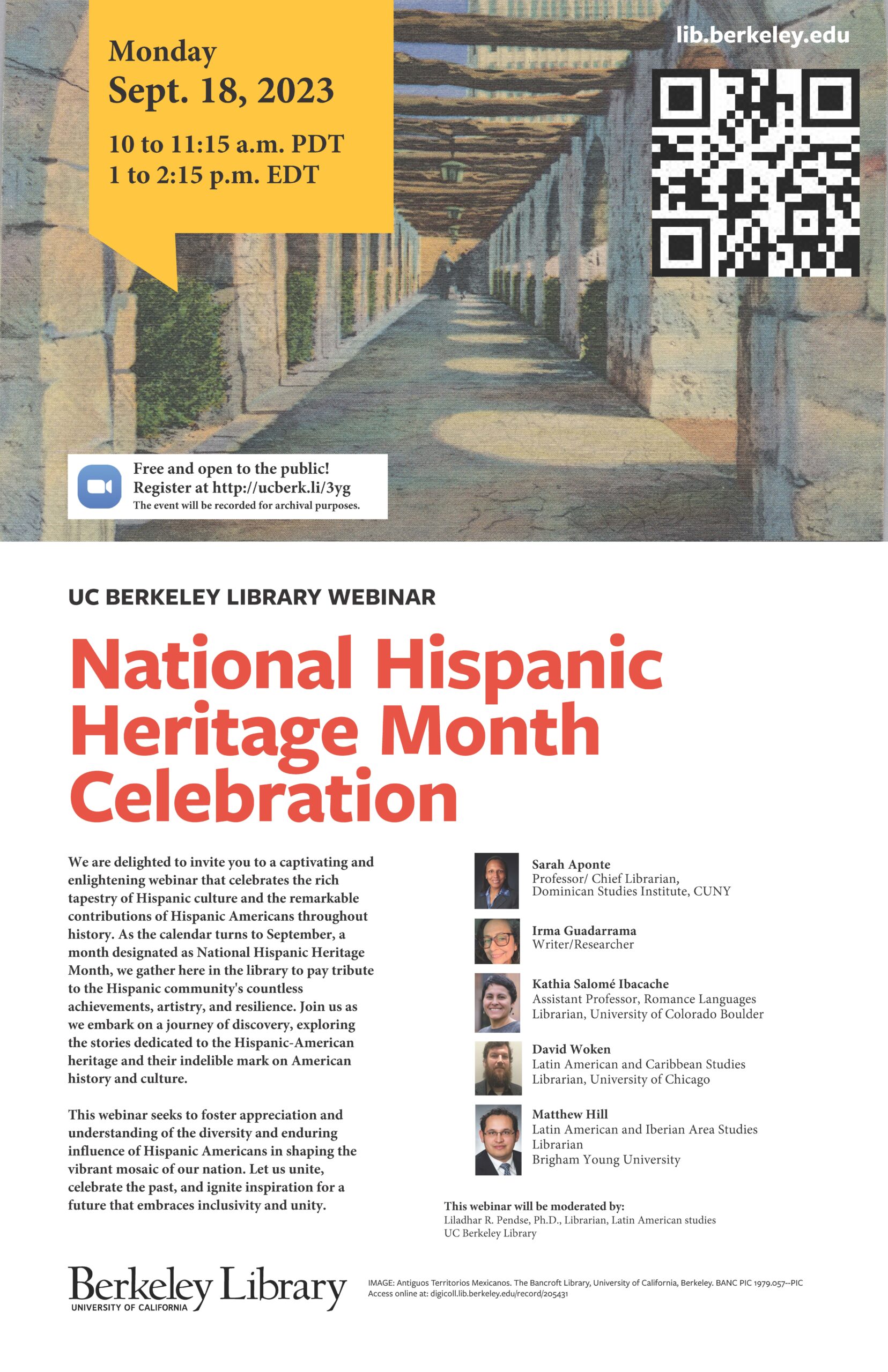
National Hispanic Heritage Month Celebration Webinar 2023 at UC Berkeley Library
Berkeley Bustle, Fall ’23
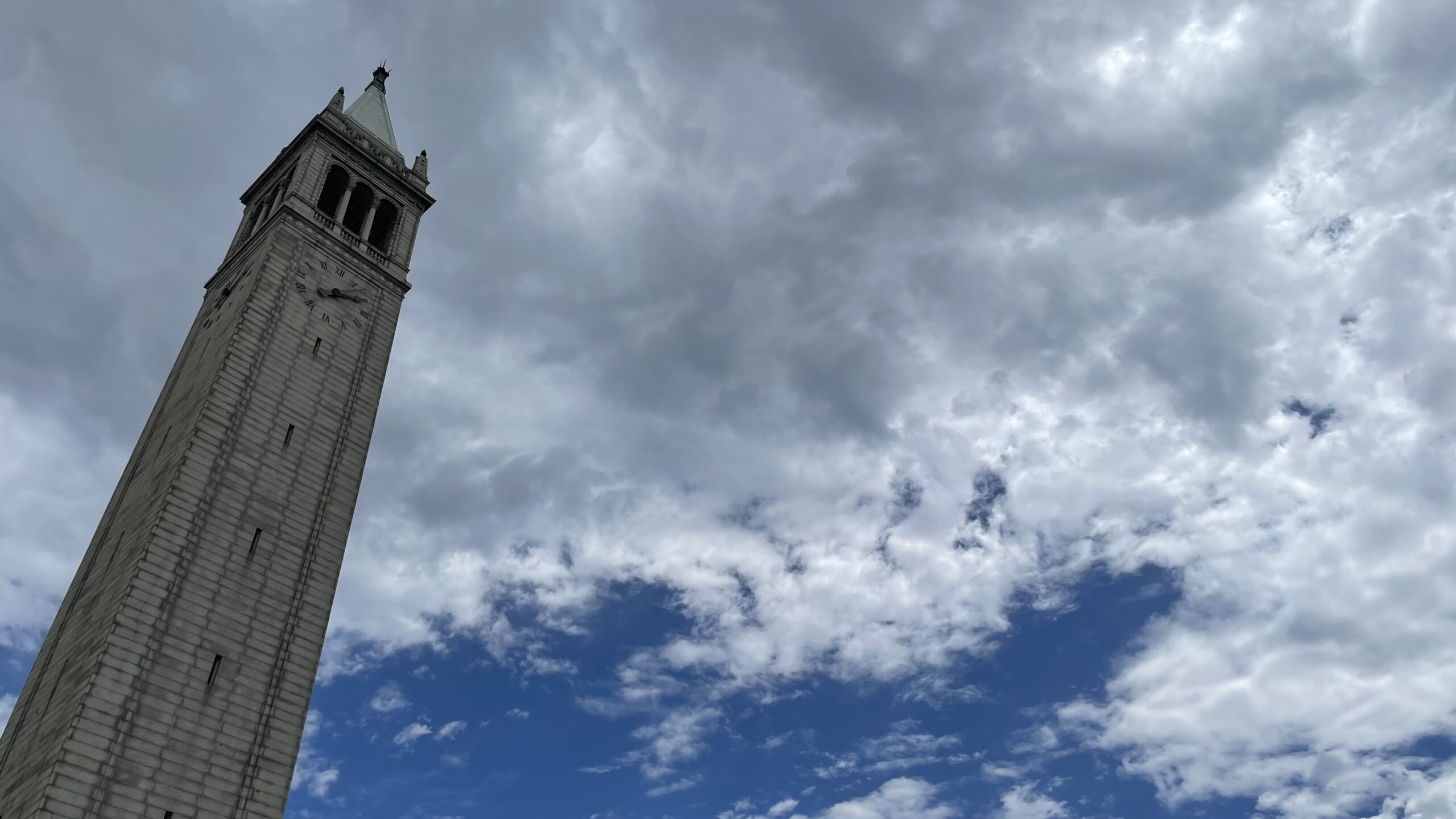
UC Berkeley’s campanile sounding out the fall semester
Fall brings the bustle back to campus: the doubled traffic, the logistics planners, the events and grounds crews, the battalions of excited and brilliant first-year students. The bustle never left the OHC. We continue to push forward on a number of fronts, publishing oral histories, podcasts, and documentaries, giving presentations at conferences, and leading educational and public history work. But first, our fourth podcast season, Berkeley at 150: Let there Be Light, explores three different aspects of life at Berkeley: home, food, and studying hard. First-years to alums, feel free to enjoy in no particular order.
In August, we hosted our 21st Oral History Advanced Institute. With around fifty remote attendees from across the United States and around the world, we explored the A-Z of oral history, from theory and methodology to interviewing practices and options for archiving and interpreting interviews once they are completed. Most valuable of all, for us and for the attendees, was the workshopping of individual projects. Everyone came away with a richer experience of what it means to do this work! Watch our web space and our social media in early 2024 for next August’s institute.
Recently, we launched the UC Berkeley School of Public Health Oral History Project, which documents the changes and innovations the school has undertaken over the past twenty years. We’ve recently had the great fortune of interviewing some titans in the humanities and social sciences, exploring the relationship between a thinker’s lived experience and their ideas. Roger Eardley-Pryor interviewed famed environmental historian Carolyn Merchant, who is one of the key contributors to the domains of ecofeminism and feminist science studies. But more than that, it is nearly impossible to be an educated general historian without encountering her work in your formation and scholarship. Merchant and James Scott are two intellectuals who seem to transcend the notion of fields, whether traditional or new. It is rare to visit a scholar’s office or home, no matter what their discipline, and not see a copy of Scott’s Seeing Like A State on the shelf. Not only did Todd Holmes interview Scott and other scholars at the Agrarian Studies program that Scott founded at Yale, but he also produced a film about Scott, which is part of our ongoing work to make our interviews accessible and useful to educators, students, and the general public.
We’re putting the finishing touches on our first-ever exhibit in collaboration with The Bancroft Library, entitled “Voices for the Environment: A Century of Bay Area Activism.” Right across from our offices in The Bancroft Library, the museum space will feature audio from our interviews set to video of photos, maps, and more, while original paintings, murals, photos, posters, and pamphlets are displayed throughout the gallery space. There are also podcasts with more interview content for each section of the exhibit, all of which will be placed online as a permanent digital exhibition for the public to explore.
At the Oral History Association annual meeting in Baltimore, Roger Eardley-Pryor will present on a panel on the integration of audio and objects into public history and education work on October 19th. Amanda Tewes will be moderating that panel, as well as “Place-Based Oral Histories” on October 20th. Amanda also served on the OHA’s 2023 Program Committee. Shanna Farrell, who is on the Oral History Association Council, will be moderating the “Interviewing Dilemmas” panel on October 20th.
With the interviews for the Japanese American Intergenerational Narratives Project near completion, the interviewers recently collaborated with graphic artist Emily Ehlen and producer Rose Khor to build graphic-art pieces and a podcast derived from the interviews. We’re looking forward to their release.
Communications Director Jill Schlessinger asked student editors to reflect on the nature and meaning of oral history based on their experiences working with transcripts and conducting research at the center. Editor Adam Hagen also wrote a piece about Ernesto Galarza based on our interviews with the Mexican American educator and activist.
We’re continuing a lot of projects: on Japanese American intergenerational narratives, the East Bay Regional Park District, the Getty Trust, the San Francisco Opera, and the California State Archives. A host of new projects are coming this school year, from the California Supreme Court to cannabis genetics to the California Coastal Commission to more voices from UC Berkeley and the Bay Area science community. Stay tuned.
We wish everyone on campus and beyond a fantastic year!
A spearhead for the barrio: the educational activism of Ernesto Galarza
From the Archives
By Adam Hagen
UC Berkeley’s Oral History Center houses a number of oral histories that center the lives of Mexican American activists. One such history, Burning Light: Action and Organizing in the Mexican Community in California, contains the recorded speeches and interviews of Ernesto Galarza from the late 1950s through the early 1980s, and provides a glimpse into the life of a man whose commitment to the Mexican American agricultural workers of California never wavered, even when he found himself a continent apart from them.
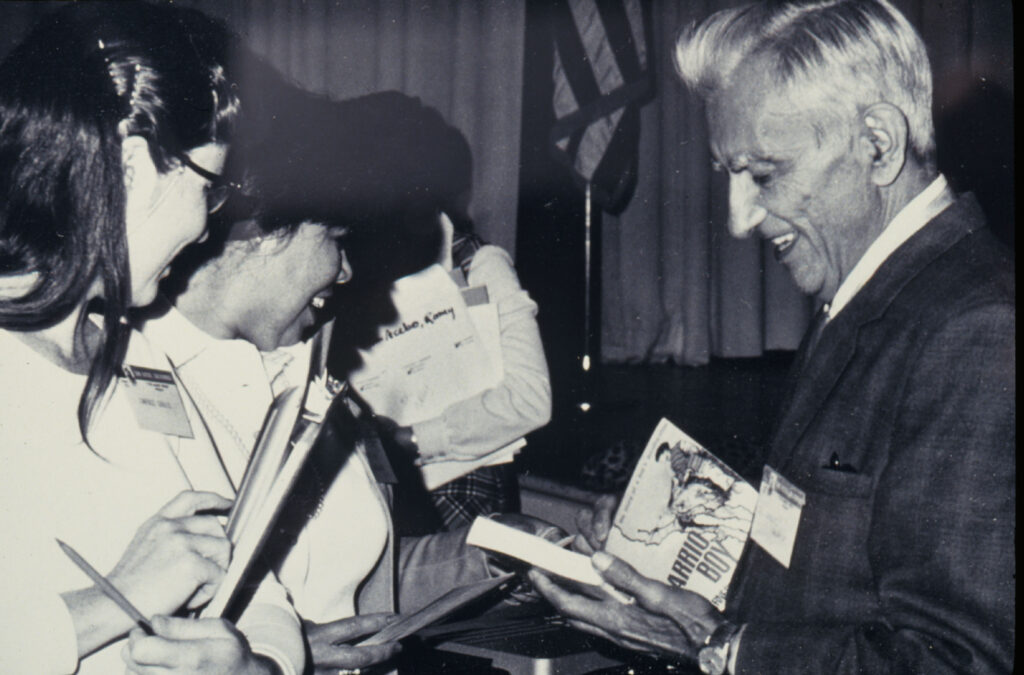
Galarza’s words, which he imbues with a certain dry poetry, recount a life of extraordinary experience and achievement: Galarza worked as an organizer with the United Farm Workers of America, where he was instrumental in bringing the bracero program to an end; as an educator at the elementary and collegiate levels; and for a time as the chairman of the development of bilingual educational material for the National Committee of Classroom Teachers. He also worked as a consultant for several organizations and institutions, including the government of Bolivia. A recurring theme in Galarza’s oral history, and the subject of this profile, is his efforts on behalf of bilingual education and Spanish literacy advancement in the Mexican American community.
Galarza was born in the village of Jalcocotán in the Mexican state of Nayarit in 1905. But fleeing the tumult of Francisco Madero’s revolution, he and his family came to Sacramento in 1911, when the Central Valley’s patchwork of farm property was not yet its present expanse and its limits did not so easily elude the eye. There, enveloped in a community of agricultural laborers in the Sacramento barrio, a young Galarza would see firsthand the struggles of Mexican Americans and braceros as they tried to navigate the foreign land in which they now found themselves. And, as his family was of modest means—exacerbated by his mother’s death in 1917—he too joined in this work from an early age. One of the recorded talks compiled in the oral history contains a poignant allusion to his communities’ challenges in adapting to life in the United States, and, as it deals with the matter of English language acquisition, reveals the seeds of his future work. In the talk, Galarza recalls that he “became a leader in the Mexican community at the age of eight for the simple reason that I knew perhaps two dozen words of English.”
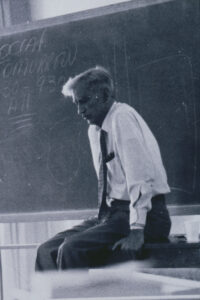
English proficiency, however, was only one of a number of skills that Galarza exhibited in his youth. His academic prowess was so apparent that Sacramento High School teacher Ralph Everett approached him personally and asked that he reconsider his plan to work at the Sacramento Libby, McNeill & Libby cannery after graduation, insisting that he attend college instead. Everett even went to great lengths to help Galarza gain admission to Occidental College in Los Angeles, the institution he would graduate from in 1927. After Occidental, Galarza would go on to earn a master’s degree in history from Stanford University in 1929 and a doctorate in sociology from Columbia University in 1944.
Galarza’s recollection of his time at these institutions reveals how rare it was for a “Mexicano” to have the opportunity to obtain a higher education in the early twentieth century. He had this to say at a talk for Chicano studies students at UC Berkeley in 1977:
The Chicano students that I knew in the thirties at Columbia and elsewhere were very few in number. At Columbia University I didn’t know another graduate student in the department of history or political science or public law, which is where I did my work. Neither were there many of us in the undergraduate institutions in Southern California where I went to college at Occidental. I remember, I think it was in 1925, out of sheer curiosity I inquired among my friends at UCLA, USC, Pomona, Whittier and all of that cluster of colleges in the south, and I could only identify six of us in all of those places. Of course, possibly that wasn’t a good count because even then there were some Chicanos who had already given up their identity. They had become anything but Mexicans. In those days, we didn’t talk about Chicanos. You were either a Mexicano or you were not.
His skills in English and consequent academic achievements were a relative anomaly among the bracero and Mexican American communities due to there being a dearth of bilingual and English language education resources at the time of his youth. According to Galarza, not until the latter half of the twentieth century did the federal government take the concept of bilingual education and English as a second language (ESL) education seriously and fund it in any substantial fashion. And, as he notes in his oral history, once funding did increase there remained a system that overlooked the intricacies of bilingual education; advisory committees in Washington attempted to regulate the bilingual and ESL instruction from afar, and their distance resulted in curriculum that was incongruent with students’ needs.
Concerned about this oversight, Galarza explains that he and other instructors working in bilingual education were actively challenging the Department of Health, Education and Welfare and the Office of Bilingual Education in the 1970s, and had begun to see success. As he says in the oral history, he felt their work “has been so effective, even modest as it is, that it has created waves that have become very ominous to them.”
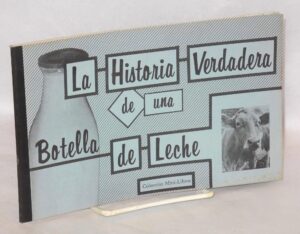
And beyond his pushing for better, more personalized bilingual education curriculum on an institutional level, Galarza—believing that Spanish literacy had to precede English instruction—took it upon himself to craft and publish what he called “Mini-Libros,” easy-to-read Spanish texts that he designed for use in the classroom and hoped would engage young readers. So as to make students as comfortable as possible, the Mini-Libros even contained vocabulary specific to Mexico and the working-class immigrants coming to the United States at the time.
These actions were especially timely because Mexican immigration into the US was greatly increasing in the 1960s and ’70s, a topic thoroughly discussed in the interview. Galarza recognized the wealth of challenges—from housing to employment to education—that came with incorporating such a massive population into the fabric of American society, and identified the issues of literacy and English proficiency as those he was most eager to help resolve.
Each summer in his undergraduate years Galarzo would return to Sacramento to do what he called “bread and butter work” in the farms and the cannery. Later, when he left California to study at Columbia and the path home was no longer so easily negotiated, his community’s want of literacy became a major concern, in part his due to its personal impact:
I began to be disturbed by the lack of news from home. My family and my friends back in Sacramento were not writers. They didn’t know, many of them, how to write…When I realized after my third or fourth year back in the East that this was happening to me, I became very disturbed. And while we stayed in the East another six years, that feeling never left me that what was happening back in California in all the towns that I knew and where I had worked, I was not keeping abreast of.
Galarza believed that the Mexican immigrant children coming into the school system in the mid-twentieth century had to be brought into the fold of American life, to be “acculturated,” in his words, so as to avoid the fate of his own family and community. And such acculturation could not begin with a hard-and-fast imposition of English instruction, something he believed would only further alienate the newly arrived immigrants, accelerate the creation of insular communities, and complicate their path to prosperity in the US. He viewed bilingual education as the obvious answer to this challenge. It would help a child, as he noted in his oral history, to “recognize—to get into—and become familiar with this strange environment into which he’s been dropped.”
Galarza’s oral history is an invaluable glimpse into the subtle divides of his time: for each acknowledgement of how badly the “American hosts” have treated Mexican Americans, he has another remark on the myopia of Mexican American activists due to their protests against acculturation—something he believed was “largely for the purposes of propaganda.” And beyond these commentaries, he proves to be equally invaluable as a representation of a steadfast activism that lacks glamour and prefers actions to words. Galarza identified the challenges of his time and repeatedly asked the central question: what to do about it?
Find this interview and all our oral histories from the search feature on our home page. You can search by name, keyword, and several other criteria.
Adam Hagen recently graduated UC Berkeley with majors in Spanish linguistics and history. Adam worked as a student editor for the Oral History Center and was also a member of the editing staff of Clio’s Scroll, the Berkeley Undergraduate History Journal.
Related Resources from The Bancroft Library
The Bancroft Library has more than thirty holdings by Ernesto Galarza, including poems, books, reports, pamphlets, conference proceedings, and audio of talks and panel discussions. From the UC Library Search, go to “Advanced Search,” select “UC Berkeley special collections and archives,” and in the search field, enter Ernesto Galarza.
The Chicana/o Studies Oral History Project provides a rare, firsthand look at the development of the field of Chicana/o studies over the last fifty years, as well as unique insight into the lives and careers of the pioneering scholars who shaped it.
The Oral History Center digital collection contains additional oral histories of Mexican American activists, such as Hope Mendoza Schechter and Herman E. Gallegos. More can be found by searching “Mexican American community” or “Mexican American activism” on the Oral History Center home page.
Ernesto Galarza’s oral history is part of the Oral History Center’s Advocacy and Philanthropy—Individual Interviews collection. Read more about the collection in the article by Lauren Sheehan-Clark, “Helping Hands: A Guide to the Oral History Center’s Advocacy and Philanthropy Individual Interviews.”
About the Oral History Center
The Oral History Center of The Bancroft Library preserves voices of people from all walks of life, with varying perspectives, experiences, pursuits, and backgrounds. We are committed to open access and our oral histories and interpretive materials are available online at no cost to scholars and the public. You can find our oral histories from the search feature on our home page. Search by name, keyword, and several other criteria. Sign up for our monthly newsletter featuring think pieces, new releases, podcasts, Q&As, and everything oral history. Access the most recent articles from our home page or go straight to our blog home.
Connection, Insight, Inspiration, Truth: Berkeley undergraduates reflect on oral history
“I was just one of thousands of people over the years who have done the little things necessary to create and to pass on personal narratives of the past.” —Mollie Appel-Turner
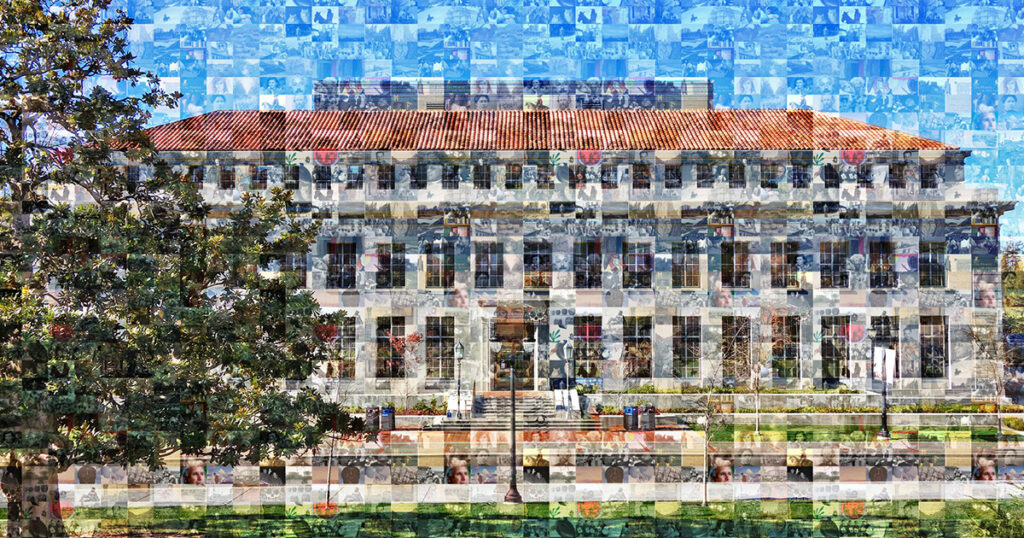
Introduction: Thoughts on the Production of Oral History and Its Importance
by Serena Ingalls, class of 2023
Like many of my student co-workers at the Oral History Center (OHC), I have recently graduated from UC Berkeley. Graduation from college is a major milestone, and I find myself looking back at all of my different experiences at Cal: classes, clubs, the pandemic, and my job as a student editor and researcher at the Oral History Center. My job in oral history in particular is a point of contemplation, as I’ve spent many hours in this role and it’s a unique experience that only a handful of other students can relate to. I find myself wondering, how has this job impacted me and my view of the world? How has my work in this role contributed to the field of history?
Before closing the UC Berkeley chapter in our lives and moving on to other post-grad interests, we as the student editors took the time to reflect upon our work at the Oral History Center and what it means to us. We hope that you’ll enjoy stepping into our world as student editors in oral history, just as we have enjoyed the experience of getting to know the many fascinating individuals in our oral history archive.
Editor’s note: Our team’s student editors serve critical functions in our oral history production, analyzing entire transcripts to write discursive tables of contents, entering interviewee comments, editing front matter, writing abstracts, and more. They do the work of professional editors and we would not be able to keep up our pace of interviews without them.
Mollie Appel-Turner: Oral History and Connection
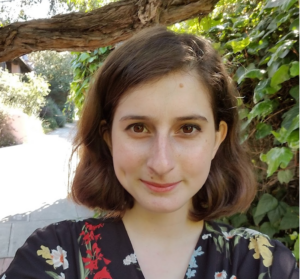
Working for the Oral History Center of The Bancroft Library while pursuing a history degree was both deeply rewarding and extremely unfamiliar. My area of interest when it comes to history has always been western medieval Europe. While there are plenty of sources from the era where people recount their life experiences, I always had an awareness of the massive separation—temporal, cultural, and physical—between myself and the speaker. At the Oral History Center, I was keenly aware that the work that I was doing on oral histories was with the ultimate goal of preserving knowledge for future generations. But for the time being, that gulf I was used to, which to me practically defined the work I did as history, was simply not present. In my time outside of work, I also spent a fair chunk of time reading people’s personal accounts. While these accounts differed in many ways from the oral histories that I worked on, as time passed, I came to see these different kinds of personal accounts as reflections of one another. I would frequently stop in the middle of my shift, cursor blinking next to a spelling error, and think about how I was just one of thousands of people over the years who have done the little things necessary to create and to pass on personal narratives of the past. The immediacy, and modernity of the accounts that I worked on at the Oral History Center, rather than widening the distance I felt between me and the medieval people I studied, made me feel closer to them in a way that I did not expect.
Mollie Appel-Turner joined the UC Berkeley Oral History Center as a student editor in fall 2021. She recently graduated with a degree in history with a concentration in medieval history.
Shannon White: Oral History and Inspiration
In my time at the Oral History Center, I have worked on and witnessed the publication of interviews from an innumerable variety of narrators, including artists, writers, curators, academics, conservationists, and otherwise “ordinary” people with extraordinary stories to tell. I recall the first oral history I worked on upon joining the Center: Thomas Gaehtgens, former director of the Getty Research Institute, whose interview was not only incredibly detailed but also quite interesting to read. More recently, I have helped edit interviews from the Chicana/o Studies Oral History Project, the Japanese American Intergenerational Narratives Oral History Project, and the California State Archives State Government Oral History Program.
As a member of the OHC’s editorial team, most of my work is behind the scenes and prior to publication. I see these interviews at almost every stage in production. By the time an oral history transcript is finalized, I have generally read through it in its entirety several times and am quite familiar with the contents; as such, I interact with oral history at multiple levels. This experience has ultimately helped form and maintain my view of oral history as an inherently dynamic, interactive record—a form of living history.
The final oral history is a labor of many people to produce, with several rounds of edits and review that heavily draw from the narrator’s own input, and as such possesses a strong sense of the narrator’s personal style: how they speak, what they consider important or even essential for understanding their stories, their sense of humor, and what elements of the initial oral interview they would prefer to keep private.
The result is a distinctively humanizing portrayal of the narrator that arises from the nature of oral history as a lightly edited, audio-based interview format. The reliance on the “oral” aspect of oral history means that, bar serious editing, the published transcripts of interviews from the OHC tend to preserve a great deal of the tone of the original audio recording, including quirks of speech unique to each narrator. My personal favorite detail is always the bracketed notes included by the transcriber to indicate when someone is laughing, a phenomenon that often accompanies the conversation between interviewer and narrator and, in my opinion, highlights the deeply personal nature of these interviews.
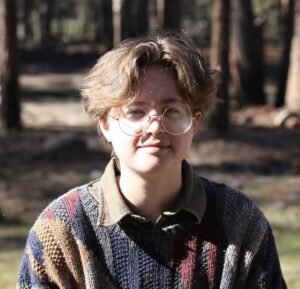
By sheer virtue of the volume of in-progress oral histories I interact with, I find that in time they become almost a part of you—there are so many narrators whose words and stories I remember, and whose work I have actively sought out after encountering their oral histories. For example, I became interested in Bay Area arts institutions after reading the interview of a San Francisco Opera board member; my own undergraduate research has been informed in no small part by border theory, a concept I was first introduced to by the narrators of the Chicana/o Studies Oral History Project; and my work on the oral histories of California politicians has contributed to my awareness of the history of the state’s politics. Oral history is intimate and alive, and its existence has the unique ability to inform and inspire those who engage with it.
Shannon White is a recent UC Berkeley graduate in the Department of Ancient Greek and Roman Studies. They were an undergraduate research apprentice in the Nemea Center under Dr. Kim Shelton and a member of the editing staff for the Berkeley Undergraduate Journal of Classics. Shannon worked as an editorial assistant for the Oral History Center.
Serena Ingalls: Oral History and Insight
Before working at the Oral History Center as a student editorial and research assistant, my interactions with oral history were limited. As a history major, it was a topic occasionally mentioned in my classes at Cal. I could understand the value in oral history as a way of filling in gaps in the historical record and giving a voice to those who were excluded from the written record. After I began my work with the OHC, however, I gained a new appreciation for oral history. This change in perspective came after seeing firsthand the immense effort that goes into producing oral histories to be shared with the public, and from reading the oral histories in our archive.
At the Oral History Center, I’ve worked in two roles. One of my roles is as a research assistant. In order to promote our archive and share our interviews with the public, we post on social media about relevant historical anniversaries (25th, 50th, 75th, 100th). I research these anniversaries and then search the archive to see if we have content that references these historical events. It’s surprising how many specific events are mentioned by interviewees, so I never discount an event without checking first with the archive. If there is one event that is very historically significant and has several interviews that reference it, sometimes I’ll write an article on the subject for the OHC. My other role is as an editorial assistant. Editorial assistants are part of the process of readying an oral history for publication. Student editorial assistants have a range of responsibilities during the editorial process which include inputting corrections from narrators, writing the table of contents, and more. Editing the oral history is a collaborative process, and it can take months or even years before an oral history is fully ready for publication. Once an oral history is completed and shared with the public, all who have worked on a particular oral history know the narrator inside and out.
The OHC has an enormous archive of interviews with narrators who have incredible insight on the history of California and beyond. Their voices provide knowledge, but more critically, they add life to these historical periods. The interviews are at times surprising, heartbreaking, and even funny, and no two interviewees have the same story. Each interview is a unique combination of the mundane and the extraordinary, just like the life of any person.
“Each interview is a unique combination of the mundane and the extraordinary, just like the life of any person.” —Serena Ingalls
Serena Ingalls recently graduated UC Berkeley with majors in history and French. She is an editorial and research assistant for the Oral History Center. Serena came up with the idea for an article about what it’s like to work on oral histories when she worked on an article about the seventy-fifth anniversary of the tape recorder.
William Cooke: Oral History and Truth
A few short months ago, I graduated from UC Berkeley. I have completed 12 political science courses; written dozens of sports articles for Berkeley’s independent student newspaper, The Daily Californian; struggled my way through one too many required science classes; and penned more than a few essays en route to a minor in history.
As a journalist and student, determining and advancing truth was at the heart of everything I did. For example, in order to make a sound political science argument about the role of agency in a democracy, I could not reinvent what Harriet Jacobs wrote in her autobiography, Incidents in the Life of a Slave Girl. Desiderius Erasmus had something specific to say about tyranny. What was it, exactly? Did Cal’s football team run or pass the ball more often on third down? If the United States federal government really did assume a different position towards organized labor after World War II, what evidence supports that claim?
The answers to my own questions, or the questions my professors asked of me, had to be completely truthful. I certainly couldn’t say that I didn’t have an answer to an essay prompt.
Oral history is a little bit different. When I first began working here last year, I couldn’t help but be skeptical. An interviewee in her eighties cannot with absolute accuracy remember her childhood years during the Great Depression, or her immediate reaction to the assassination of President Kennedy. Memory fails people all the time. A story might be true on the whole, I thought to myself, but the details might not. And what use was the answer “I don’t know?” That might be the truth, but what good is an oral history in which there are gaps?
In short, how could a researcher possibly find use in an incomplete, possibly inaccurate story told by someone fifty years after the fact?
Of course, these questions are not on my mind as I write a table of contents or fix formatting issues on a transcript. My work can be tedious at times. As someone whose mind likes to stay busy, I don’t mind. But every now and then I will stop and think critically about what I’m reading and how it relates to my role as a student, journalist, and assistant at the Oral History Center; namely, promoting truth.
I soon came to terms with the fact that oral histories cannot be totally accurate and that in an important way they are true. While the historian attempts to explain how people in the past saw themselves, their situation or others in very broad terms, the oral history provides insight into how a creator of history currently thinks of her past self, a valuable perspective for social scientists of all stripes. An interviewee might have felt more anxious than nervous at a certain moment in history, but how he remembers the past is also an important part of history. What good is there in knowing the true happenings if we do not know how the living, breathing makers of history think about what happened?
And for that reason, I have come to realize that oral history isn’t impure, or less true. I do still read the oral histories I work on with a wary eye. But I don’t worry about their truthfulness like I first did back in the spring of 2022. Instead, each time I complete my portion of a project, I feel a sense of gratification for having helped keep history alive. Because true history is not a fixed thing. It lives in the minds of everyone who has experienced it.
William Cooke recently graduated UC Berkeley with a major in political science and minor in history. In addition to working as a student editor for the Oral History Center, he is a reporter in the Sports department at UC Berkeley’s independent student newspaper, The Daily Californian.
Related Works
Serena Ingalls, Saving the Spoken Word: Audio Recording Devices in Oral History
Mollie Appel-Turner, Shirley Chisholm, Women Political Leaders, and the Oral History Center collection
William Cooke, Title IX in Practice: How Title IX Affected Women’s Athletics at UC Berkeley and Beyond and Heavy hitters: the modern era of athletics management at UC Berkeley
Shannon White, “I take this obligation freely:” Recalling UC Berkeley’s loyalty oath controversy
Jill Schlessinger, editor, A peaceful silence: Berkeley undergrads reflect on remote employment during the pandemic
About the Oral History Center
The Oral History Center of The Bancroft Library preserves voices of people from all walks of life, with varying perspectives, experiences, pursuits, and backgrounds. We are committed to open access and our oral histories and interpretive materials are available online at no cost to scholars and the public. You can find our oral histories from the search feature on our home page. Search by name, keyword, and several other criteria. Sign up for our monthly newsletter featuring think pieces, new releases, podcasts, Q&As, and everything oral history. Access the most recent articles from our home page or go straight to our blog home.
Prensa Libre (Guatemalan Newspaper) Archive Trial at UC Berkeley Library
The Library has started a thirty-day trial of Prensa Libre Newspaper. One can access the resource by authenticating from an off-campus location using the following hyperlink: https://libproxy.berkeley.edu/login?qurl=https%3A%2F%2Fgpa.eastview.com%2Fpren%2F
Currently, the full-text content is available for the issues starting in 1980 through 2022.
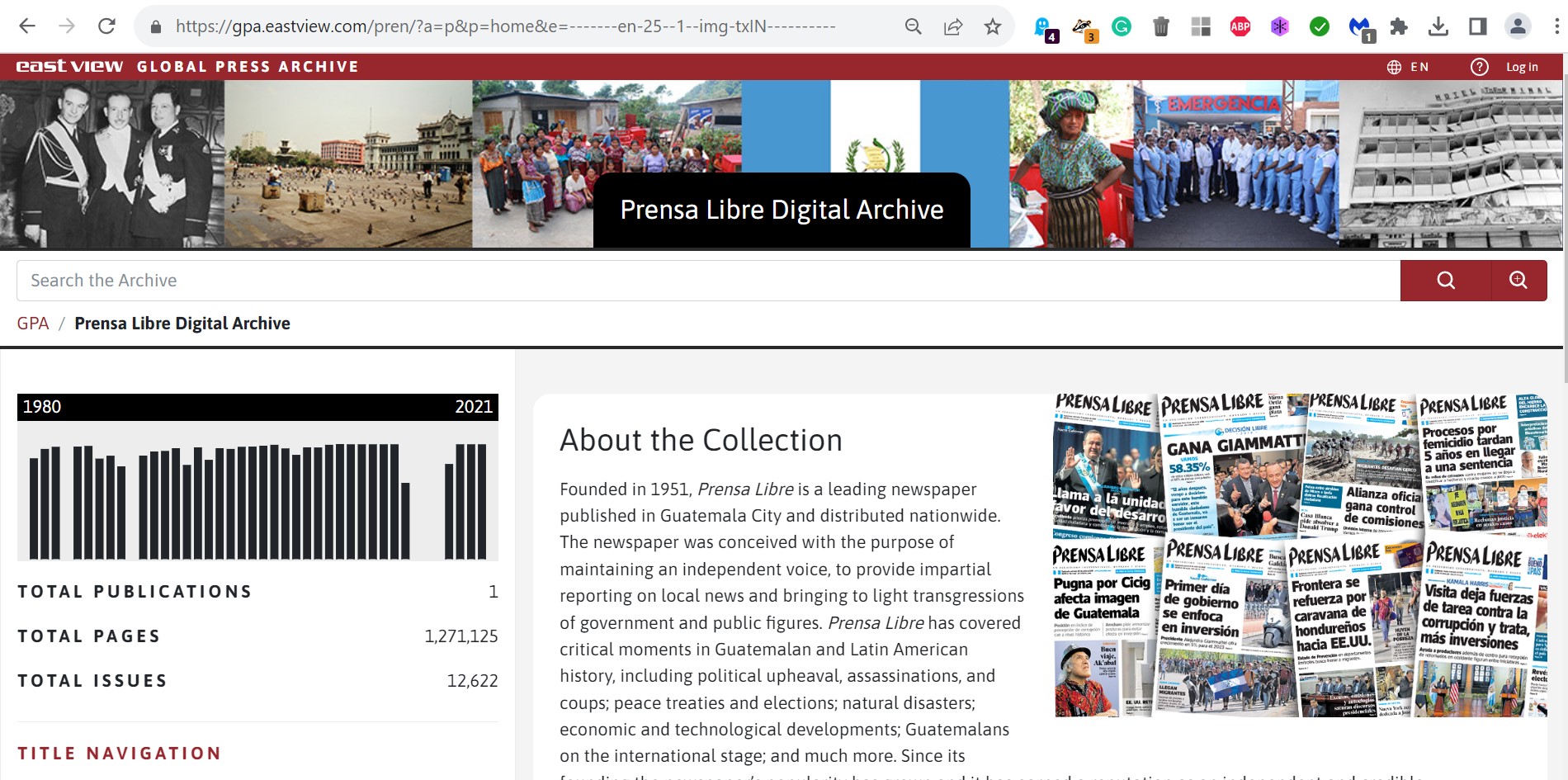
Prensa Libre fue fundado el 20 de agosto de 1951 por Pedro Julio García, Álvaro Contreras Vélez, Salvador Girón Collier, Mario Sandoval Figueroa e Isidoro Zarco Alfasa.
Prensa Libre is a Guatemalan newspaper published in Guatemala City by Prensa Libre, S.A. and distributed nationwide. It was formerly the most widely circulated newspaper in the country and as of 2007 it has the second-widest circulation.[1] It is considered a local newspaper of record. It was founded in 1951. (Source: Wikipedia)
Library Orientation for Art Practice and Art History Students
Welcome back students! If you are interested in learning more about the wonderful library arts resources, please join us at one of our upcoming library orientation sessions. Current sessions offered include:
Tuesday, September 5th 1-2
Tuesday, September 5th 4-5
Friday, September 8th 12-1
Friday, September 8th 3-4
Please rsvp at: http://ucblib.link/orientationAHC
Registration will be capped at 20 students per session. New dates/times will be added to the rsvp form if the current offerings reach capacity. We will meet in the Art History/Classics Library (room 308, 3rd floor Doe Library).
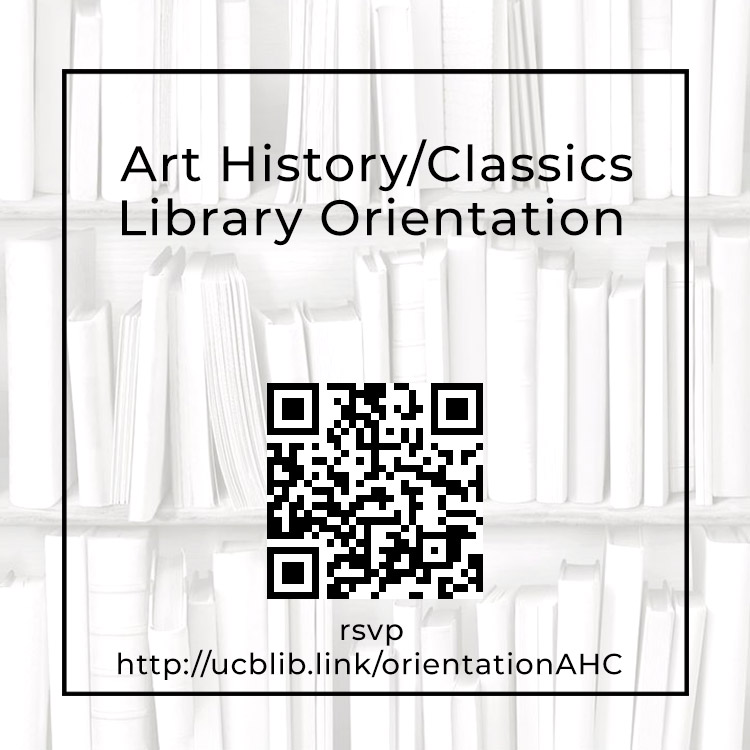
This week in Summer Reading
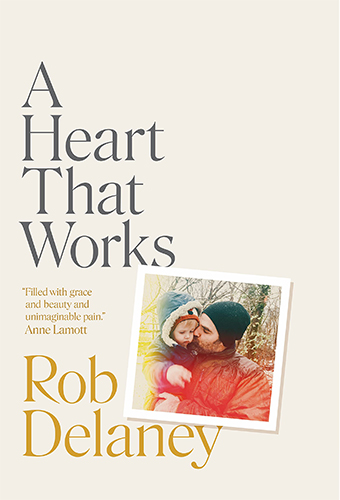
A Heart That Works
Rob Delaney
A memoir about the death of a 2-year-old from brain cancer should not make you laugh out loud. Yet actor, comedian, and writer Rob Delaney does just that in this loving account of his son Henry, who died before reaching his third birthday. In addition to sharing tender memories of Henry’s bright spirit even in the face of a brutal illness and an even more brutal treatment, this book is a love letter to Delaney’s family. It’s also an homage to the many professionals in the medical and care community who touched Henry’s life — from surgeons and nurses to healthcare assistants and hospice care workers; not to mention the volunteers who gave so much joy to Henry, including Lola the therapy dog and Singing Hands, the musical duo who use a special sign language to help teach non-verbal children how to communicate.
The other lesson in this book: The NHS – the U.K.’s much-beloved national health care service – is a “glorious institution” that enabled the Delaneys, transplants from the U.S., to maximize time spent with their very sick child rather than dealing with the bureaucracy of a multibillion dollar, publicly traded insurance bureaucracy.
MARGARET PHILLIPS
Librarian
Social Sciences Division
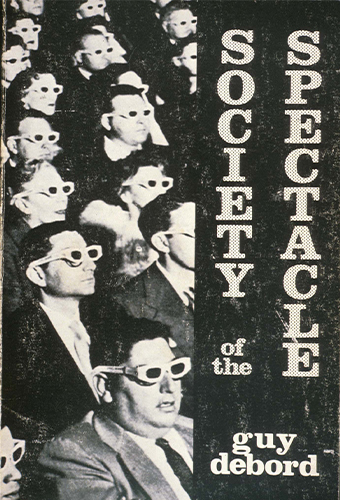
The Society of the Spectacle
Guy Debord
“The spectacle is not a collection of images, but a social relation among people, mediated by images.”
Guy Debord’s La société du spectacle, written in the wake of the student riots in Paris in 1967, is one of the most influential philosophical texts of the latter half of the 20th century that is as relevant today as when it was first published. Like one of his major influences, Karl Marx, Debord critiques our entire society: e.g., our consumption of commodities. But he goes beyond that to consider what predominates our consciousness in our daily lives. Because of the scope of his project, this is a challenging, often confounding, read.
The Society of the Spectacle consists of 221 passages, paragraphs, contained within nine chapters. I had to reread many of these several times before I even got close to something like an understanding of what Debord was trying to say. But this is worth the effort for an ultimately rewarding, no-holds-barred text that will make you rethink your daily experience.
MIKE PALMER
Enrollment Manager
College Writing Programs
Summer Reading 2023

Kick off this summer with these fantastic beach reads! From summer scares to beachside romances, check out Overdrive and the selections below for an irresistible read.
Steven Rowley
Riley Sager
Rebecca Serle
Crystal Smith Paul
Emily Henry
R. F. Kuang
Noué Kirwan
Jenny Han
Curtis Sittenfeld
Stanton Glantz: Putting Cardiovascular, Epidemiological, Economic, Political, and Policy Research into Action at UC San Francisco and Beyond
Today we announce the publication of the Oral History Center’s interviews with Dr. Stan Glantz. Dr. Glantz received his doctorate in applied mechanics from Stanford University before embarking on a multi-decade career at UC San Francisco. He contributed engineering concepts to cardiovascular research, biostatistics to epidemiology, and economics to the study of second-hand smoke and policymaking to regulate second-hand smoke, among many other research projects. The oral history explores his political and policy activism, the history of the clean indoor air movement, and his commitments to science and public health, in particular his long struggles with the tobacco industry and efforts to make UC San Francisco a world center for research into second-hand smoke, nicotine addiction, and the broader social determinants of health. His service to UC San Francisco and the University of California is also explored, in particular, his research and advocacy for policy changes on issues ranging from the rights of adjunct faculty to state funding of the UC system. These interviews showcase Glantz’s applied epistemology, his continual reflection on how knowledge is produced and shaped through formal and informal practices for arriving at scientific truth.
